Publications
Articles, publications, books, tools and multimedia features from the U.S. Institute of Peace provide the latest news, analysis, research findings, practitioner guides and reports, all related to the conflict zones and issues that are at the center of the Institute’s work to prevent and reduce violent conflict.
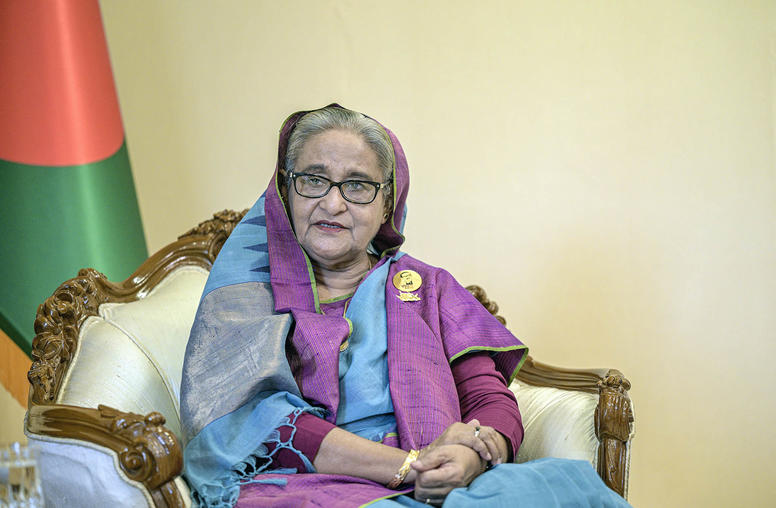
A Perilous Moment for Bangladesh’s Democracy
Bangladesh’s parliamentary elections in January cemented the country’s transition to a “dominant-party” political system. Aided by an opposition boycott on Election Day, the Awami League (AL) extended its 15 years in power with another five-year term, which will soon make Bangladesh’s prime minister, Sheikh Hasina, the world’s longest continuously serving female head of government in contemporary history. But political dominance comes with risk. Around the world, dominant-party systems often develop common maladies that harm the country’s governance. Ensuring competition across politics, government and the economy can forestall these problems.
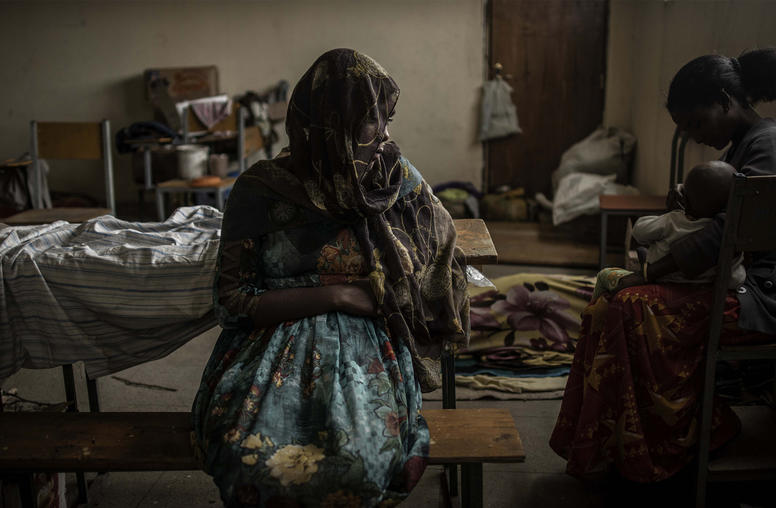
We Have Strategies to Address Gender-Based Violence — It’s Time to Implement Them
Gender-based violence against women and girls is the most pervasive breach of human rights worldwide and a tactical weapon that is fueling violent conflict. In just the last year, we have witnessed an increase in targeted attacks on women leaders, push back against women’s rights, shrinking of civil society space, virulent online harassment, and conflict-related sexual violence all in conjunction with the strengthening of authoritarianism and state aggression. This unparalleled trend is evident in many countries, including Afghanistan, Ethiopia, Iran, Myanmar and Russian-occupied Ukraine.
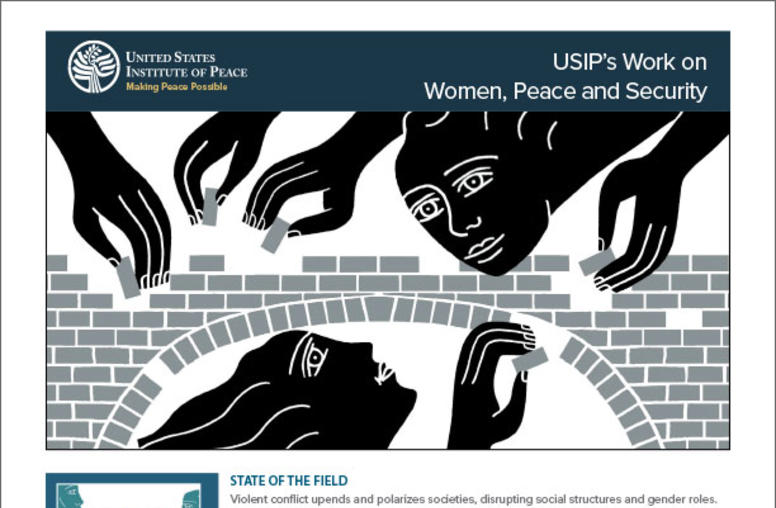
USIP’s Work on Women, Peace and Security
Violent conflict upends and polarizes societies, disrupting social structures and gender roles. Policies and projects intended to assist communities that are fragile or affected by violence are more successful when they consider the different effects conflict has on men, women, boys, girls and gender and sexual minorities.
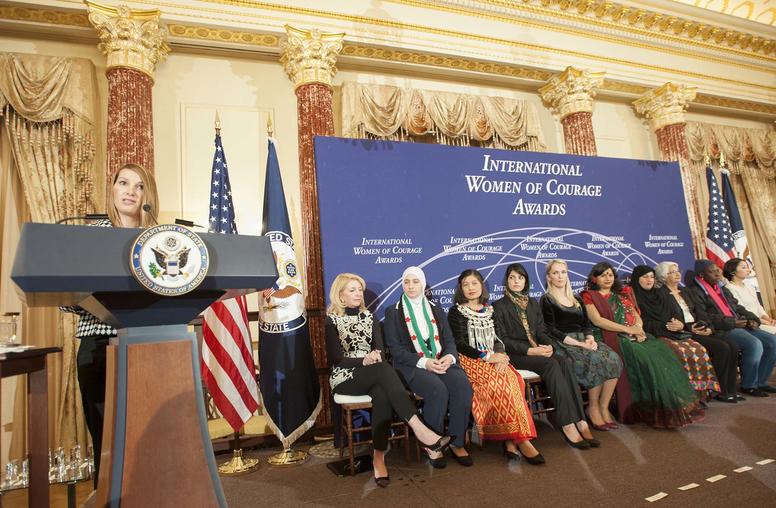
How to Advance a Feminist U.S. Foreign Policy
With the Biden-Harris administration halfway through its pivotal first 100 days, America’s foreign policy is under review. A key consideration should be the role of gender, as the United States is uniquely placed to become a global “gender superpower” by employing a feminist foreign policy. But what does that mean practically? And how can the government address challenges like Yemen’s humanitarian crisis, the Afghan peace process, or broader national security goals by taking into account the perspectives of women and gender minorities? Can the United States use its progress in areas such as the Women, Peace, and Security (WPS) Agenda to emerge as a gender superpower?
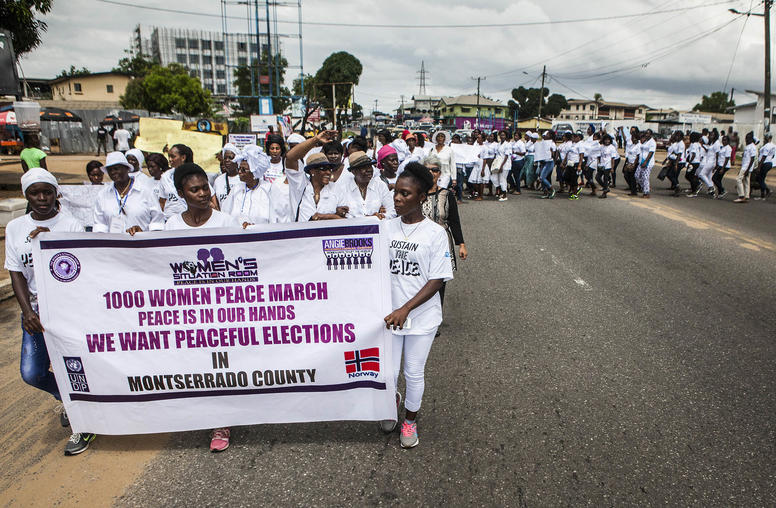
Twenty Years After Resolution 1325: Women Remain Undervalued in Peacebuilding
The COVID-19 pandemic, which has resulted in lockdowns that have led to a global surge in incidents of gender-based violence, has underscored the need for a much broader understanding of what defines security, according to Jacqueline O’Neill, Canada’s first ambassador for Women, Peace and Security (WPS).

Sameer Lalwani on INDUS-X and the Importance of Technology Coalitions
Technology partnerships like the U.S.-India INDUS-X “are going to be critical to the U.S. being able to defend and deter rising threats in the future, including the challenge of China,” says USIP’s Sameer Lalwani. “We need the strength of our allies in these coalitions” to maintain a technological advantage.

Measuring Collective Impact: Creating a Framework for Assessing Multiple Peacebuilding Projects in Colombia
USIP implemented its Initiative to Measure Peace and Conflict (IMPACT) program first in the Central African Republic and later in Colombia, where it worked directly with peacebuilding organizations to gauge their collective impact on fostering reconciliation in the wake of the 2016 peace accord between the government and FARC rebels. Drawing on the challenges encountered and lessons learned, this report provides suggestions for how future iterations of the IMPACT approach can help policymakers, donors, and practitioners achieve greater and more cost-effective results from the peacebuilding projects they support.

To open a ‘problem-solving space,’ honor the group—and the person
Cuban-American-European mediator Juan Diaz-Prinz says cultural competence means understanding not simply cultures but people and their values—honoring both a community and an individual. It means creating a space with another person in which they can safely talk about problems and seek ways with you to address them.

Juan Diaz-Prinz on Incentivizing Peace Talks in Ukraine
As it stands, both sides see little reason to engage in peace talks. But USIP’s Juan Diaz-Prinz says that shouldn’t stop the international community from trying to incentive an end to the conflict: “We’ve got to try everything, and we’ve got to try every avenue until the right one fits.”
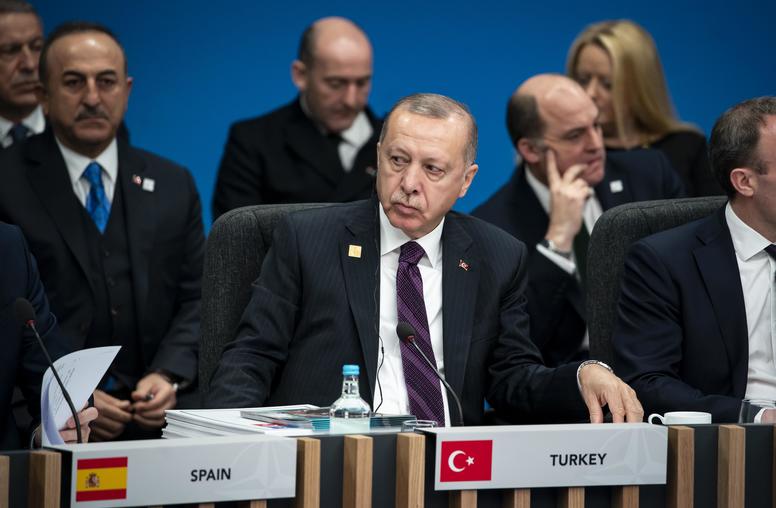
To Sustain Hopes for Peace in Ukraine, Keep an Eye on Turkey
Russia’s atrocities against Ukrainian civilians and its escalated warfare in southeastern Ukraine have swept aside last month’s public discussion of peace options as the countries briefly held talks in Turkey. Yet even in the darkest moments, all sides in this war, including the United States and Europe, have strong interests in maintaining channels for negotiation that can be used when opportunity re-emerges. Protecting that interest means understanding and maintaining Turkey’s role in facilitating talks—and its potential to serve more actively as a mediator.